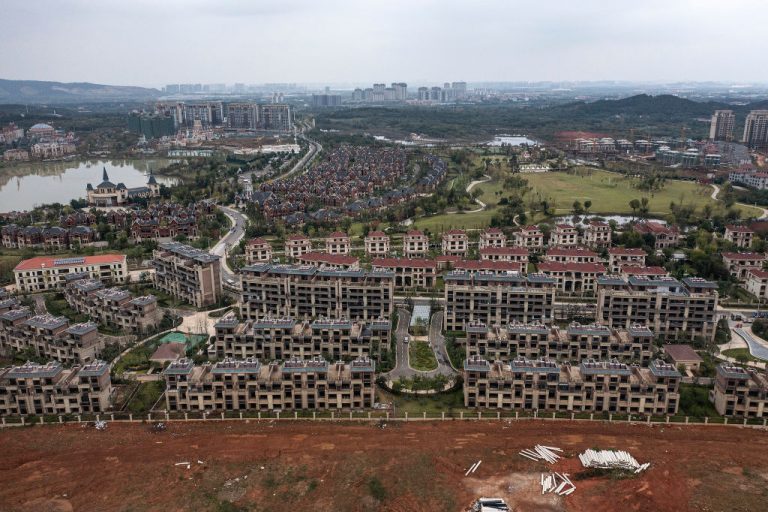China’s real estate crisis, triggered by several property companies being unable to service their debts, is one of the most-watched developments by investors world wide. Now, the U.S. Federal Reserve has warned that the situation in China could cause “possible spillovers to the United States.”
In its latest Financial Stability report that is released two times a year, the Fed pointed out that business and government debt in China remains large, with leveraged debt in the financial sector especially high. Real estate valuations are “stretched.”
In such a scenario, Beijing’s regulatory tightening on leveraged institutions can cause stress to corporations that are highly indebted. As an example, the agency pointed to the China Evergrande Group, one of the most indebted companies in China with liabilities of over $300 billion. It was Evergrande’s financial woes that kicked off the ongoing crisis in China’s property market.
“Stresses could, in turn, propagate to the Chinese financial system through spillovers to financial firms, a sudden correction of real estate prices, or a reduction in investor risk appetite. Given the size of China’s economy and financial system as well as its extensive trade linkages with the rest of the world, financial stresses in China could strain global financial markets through a deterioration of risk sentiment, pose risks to global economic growth, and affect the United States,” the Fed said in the report.
The scenario outlined in the Federal Reserve report is a marked change in the agency’s position on the matter. Back in September, Jerome Powell, the Chairman of the Federal Reserve, believed that America was not that exposed to any financial trouble emerging from China.
Success
You are now signed up for our newsletter
Success
Check your email to complete sign up
Around six real estate companies in China have defaulted on their foreign bond payments in recent weeks. Property developer Kaisa recently made a desperate plea in a meeting with a government think-tank, seeking help for paying workers, suppliers, and loan dues. Fitch downgraded the company as being close to default. The investment-grade bonds issued by Shimoa real estate firm have fallen even below junk debts.
“Investment grade firms and the state-owned names are now feeling the heat… It is more about the fear factor playing out and people trying to exit as soon as they can and going into ‘sell first, think later’ mode,” Seaport credit analyst Himanshu Porwal told Reuters.
Property prices in China are dropping while fewer customers are buying apartments, putting the real estate market in a downward spiral. Evergrande alone has over one million unfinished apartments throughout China.
The real estate sector is critical to China as it accounts for around 25 to 30 percent of the country’s GDP. Affected by the property crisis, China only grew by 4.9 percent in Q3 when compared to the previous year. This is a full three percentage points below the 7.9 growth rate the country had registered in Q2.
Though the Fed warned about a Chinese fallout affecting the United States, some experts still do not think there would be any significant effect.In an interview with CNBC, Arthur Kroeber, who helped found China-focused research firm Gavekal Dragonomic, stated that the Fed’s comments on the China impact were very vague and generic. “I think the risks to the US are small since the closed nature of China’s financial system means contagion is not likely to be a big problem,” Kroeber said.














